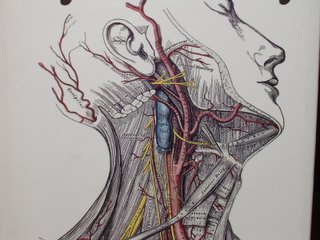Tuesday, July 11, 2006
Here's Something You Don't Hear Everyday
Starbucks may be good for you, and apparently the more the merrier:
What's most astonishing are the sheer numbers. One usually does not find statistics that high on these types of studies. It will be interesting to see what the rest of the medical community does with this information. I'll keep you posted.
I would like to point out here that if it weren't for my current writing teacher, who is trying to kick the habit, I would not have found this article, so the credit is his. Although I think my previous math teacher would disagree with him as she never came to class without her Starbucks mug of Starbucks coffee. Yet another classic battle between Humanities and the Sciences.
DRINKING coffee can substantially reduce the risk of developing diabetes, scientists have discovered.No I am not telling you that you should run out and buy four Venti Caramel Frappuccinos. The study does not suggest that excessive sugar and extreme levels of trans-fat can prevent debilitating diseases. So, sorry to you soccer moms out there, it's the drip coffee the study refers to, or anything else with caffeine that is missing all the sugars and carbs and fat.
A major study involving more than 14,000 people in Finland, which has the highest rate of coffee consumption in the world, has revealed that those who drink most have the lowest incidence of adult-onset or type 2 diabetes.
What's most astonishing are the sheer numbers. One usually does not find statistics that high on these types of studies. It will be interesting to see what the rest of the medical community does with this information. I'll keep you posted.
I would like to point out here that if it weren't for my current writing teacher, who is trying to kick the habit, I would not have found this article, so the credit is his. Although I think my previous math teacher would disagree with him as she never came to class without her Starbucks mug of Starbucks coffee. Yet another classic battle between Humanities and the Sciences.


